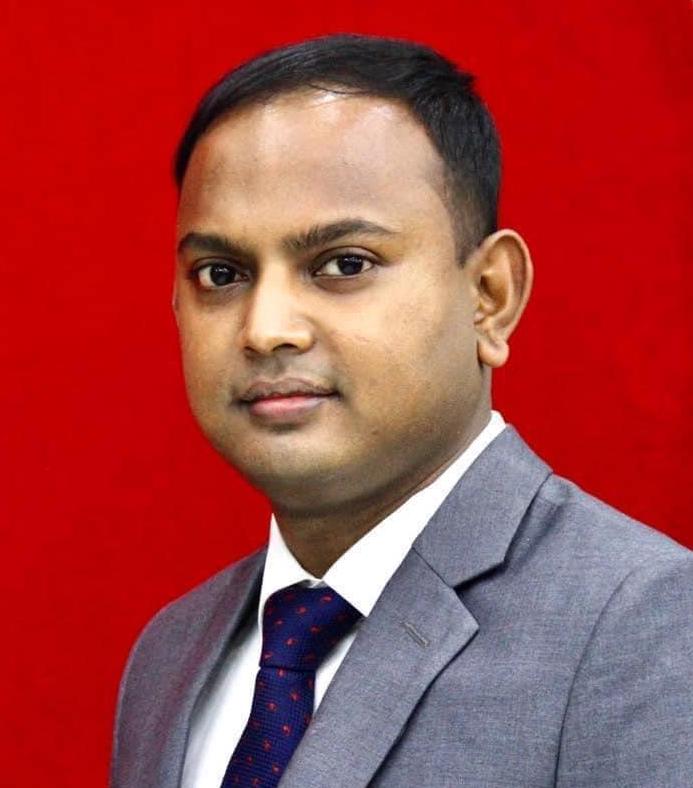 Md. Harun-Or-Rashid
Md. Harun-Or-Rashid
Upazila Nirbahi Officer
Austagram Upazila, Kishoreganj District
Bangladesh
One-year Master's Program of Public Policy (’15)
Please tell us about your career path so far. What is your area of specialization and how did you come to work in this area?
I started my career as a journalist during my undergraduate studies at the University of Dhaka, Bangladesh, in 2006. Upon completing my graduation in 2008, I joined Grameenphone, the leading telecommunications company in the country. In 2012, I entered the Bangladesh Civil Service (Administration) Cadre under the Ministry of Public Administration. Over the years, I have worked in various ministries and field administrations. Currently, I am working as Upazila Nirbahi Officer at Austagram Upazila in the Kishoreganj district, Bangladesh.
My specialization lies in public administration, focusing on poverty alleviation, land management, education, law and order, and diverse development activities. Training in Total Quality Management, particularly Kaizen at the Bangladesh Public Administration Training Center (BPATC), Dhaka, along with my studies at GRIPS, has empowered me to improve my work methods and has instilled in me a strong conviction to contribute to improving the living conditions of our citizens.
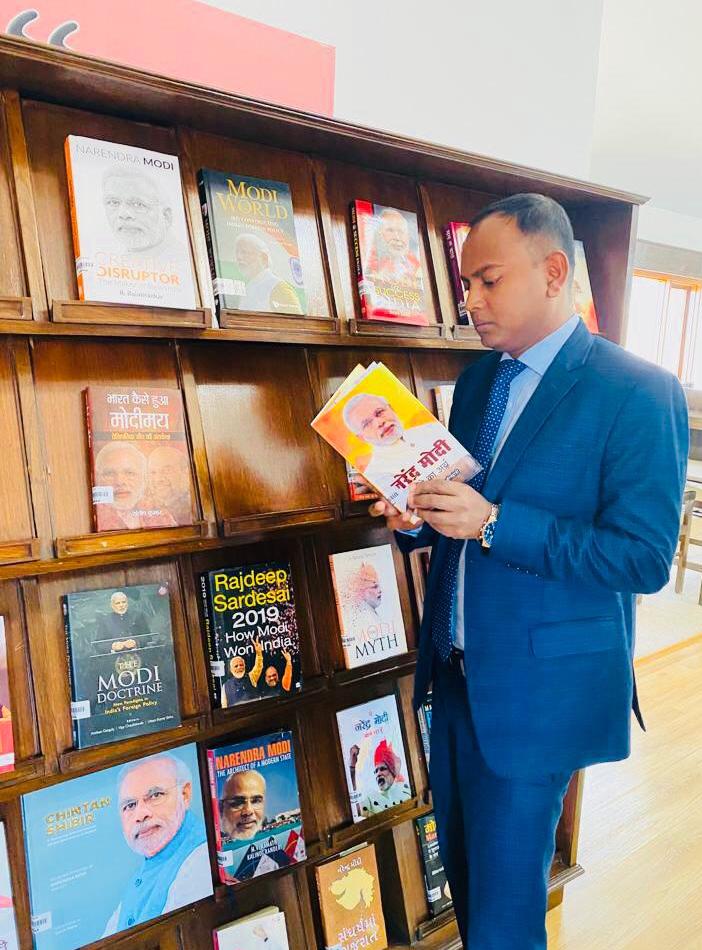
Library work during a training in India
You are currently serving as Upazila Nirbahi Officer of Austagram Upazila in Kishoreganj district, Bangladesh. Please tell us about your main roles and responsibilities.
Yes, I currently serve as the Upazila Nirbahi Officer (UNO). In this pivotal role, I function as the Chief Executive Officer of the Upazila Council in the Kishoreganj district of Bangladesh. My primary responsibility involves coordinating activities among the 17 departments under the Upazila Council's purview, all presided over by an elected Chairman. Additionally, as a representative of the central government I liaise with some more departments that operate under the guidance of both the line department and the central government, necessitating seamless coordination.
My duties encompass the implementation of government policies, acts, ordinances, rules, orders, circulars, and time-to-time directives, ensuring adherence to the prescribed guidelines. I also oversee land management and the implementation, monitoring, and evaluation of various development and other projects, and reporting about these to higher authorities. Maintaining a good law and order environment in my work place is another crucial aspect of my role, as I also function as an Executive Magistrate.
Furthermore, I serve as the drawing and disbursing officer and supervise the activities of the staff working under me.
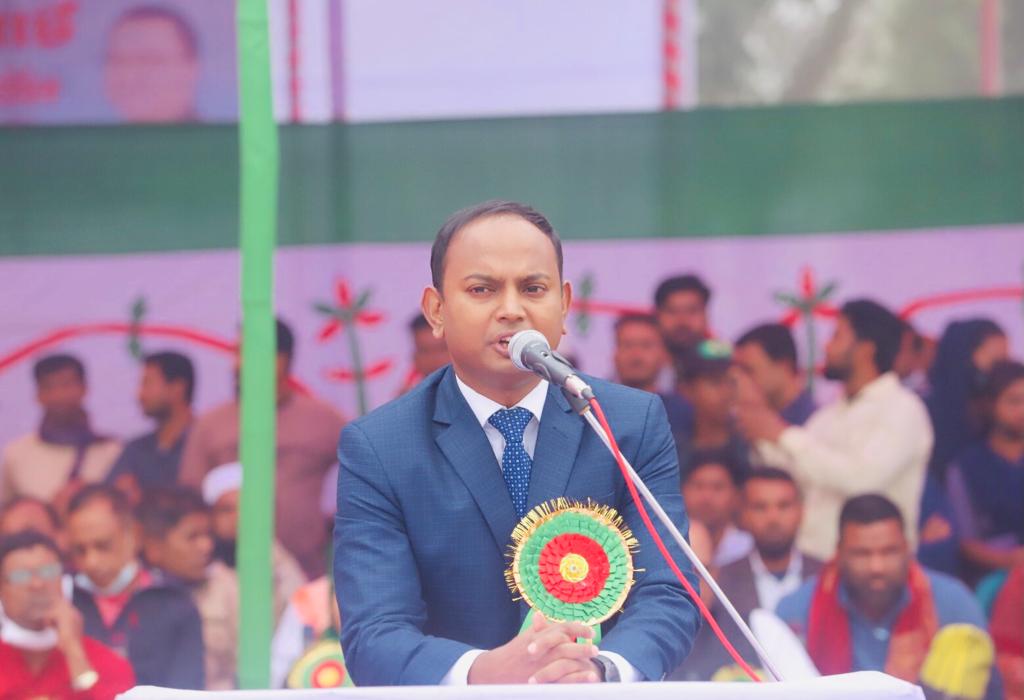
Delivering a speech during a National Ceremony
In your current capacity, what do you see as the main opportunities and challenges for Bangladesh over the course of the next five to ten years?
In my capacity as the Upazila Nirbahi Officer, I have the unique opportunity to contribute significantly to poverty reduction within the region. By ensuring access to quality education, improving sanitation facilities, combating child marriage, and enforcing various laws, I can make a tangible difference.
Additionally, my role as the drawing and disbursing officer enables me to spearhead the development of vital social and physical infrastructure such as school buildings, roads, bridges, culverts, and drainage systems.
However, numerous challenges persist. Illiteracy, poverty, inadequate education, a lack of patriotic sentiments, self-centered attitudes, moral decay, corruption, overpopulation, law and order issues, and political instability pose significant hurdles. As we strive to achieve the UN Sustainable Development Goals by 2030, the next five to ten years are pivotal for Bangladesh. Addressing these challenges and capitalizing on the available opportunities will be crucial in shaping our nation's future.
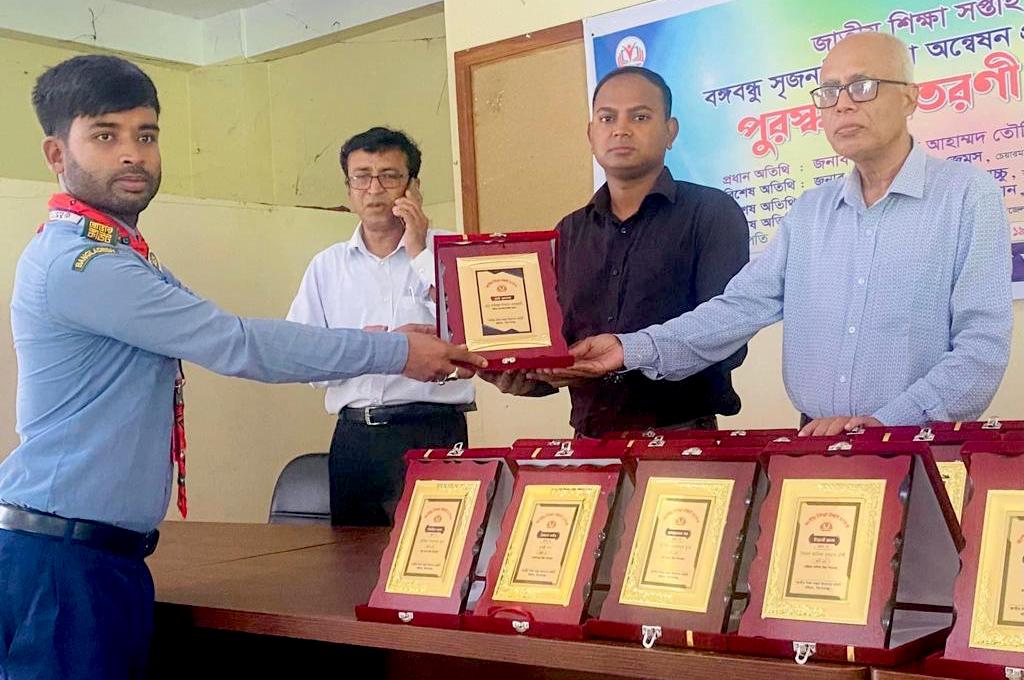
Attending award giving ceremony as Chief guest
What are some of the biggest challenges you face in your work? And what have been the most interesting or rewarding aspects of your career thus far?
Some of the most significant challenges I face in my work include a lack of proper education, dealing with a large population of ultra-poor individuals, issues related to backward communication, and undue interference in our tasks. Despite these challenges, I am proud to say that our upazila has emerged as the best in terms of primary education and birth and death registration within the Kishoreganj district, Bangladesh. This achievement has led to my recognition as the best UNO of the district, receiving this prestigious award twice. Additionally, I have been honored with the Best UNO Award for the performance in birth and death registration within the district.
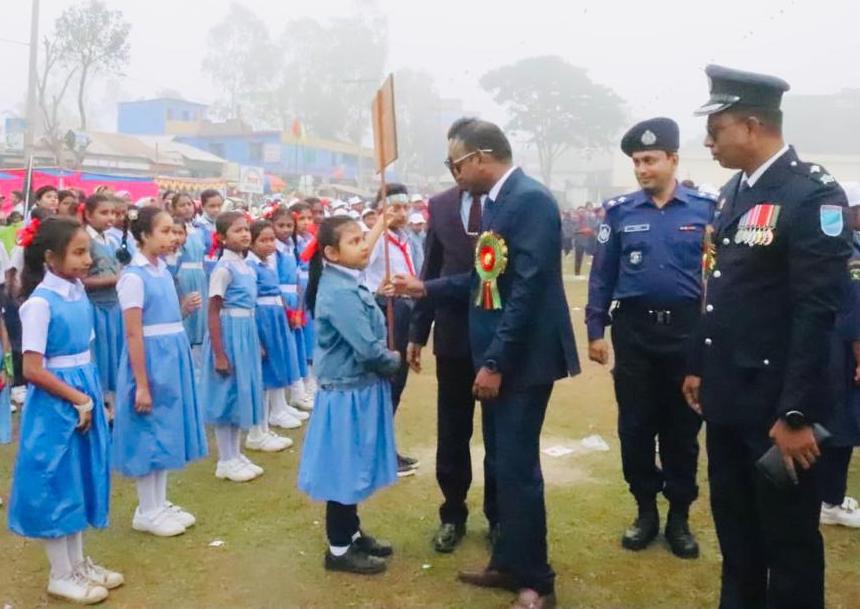
Celebrating Victory Day of Bangladesh 2022
What led you to GRIPS? What is the most important thing you got out of your studies, and how has your experience at GRIPS prepared you for future endeavors?
I enrolled at GRIPS in 2014 to pursue a Master's in Public Policy. As a civil servant, specializing in this field was essential for my career growth. Fortunately, I discovered GRIPS through a government advertisement in Bangladesh and successfully secured admission. I consider myself fortunate for several reasons. Firstly, the facilities at GRIPS were exceptional. Secondly, the faculty was incredibly knowledgeable; I had the privilege of learning from some of the best teachers in my life at GRIPS. Moreover, studying alongside civil servants, professionals, and academics from various countries allowed us to share a wealth of global knowledge and experiences. This collaborative environment significantly influenced my career in a positive manner, proving invaluable in all my future pursuits. It wouldn't be an overstatement to say that perhaps the reason that I want to return to Japan to serve in my country's Embassy there is because of my previous experience at GRIPS.
Have you had any involvement, professional or otherwise, with Japan since your graduation?
Yes, I consider the friends I made in Japan to be like family, and we regularly interact just as we would with other family members. They hold an important place in my life. After returning from Japan in 2015, I was awarded the Nippon Foundation Fellowship to pursue another master's degree in Maritime Affairs in Sweden. I had the opportunity to visit Japan again in 2018 under that fellowship. Additionally, the Embassy of Japan in Bangladesh occasionally invites me to participate in various social and cultural programs.
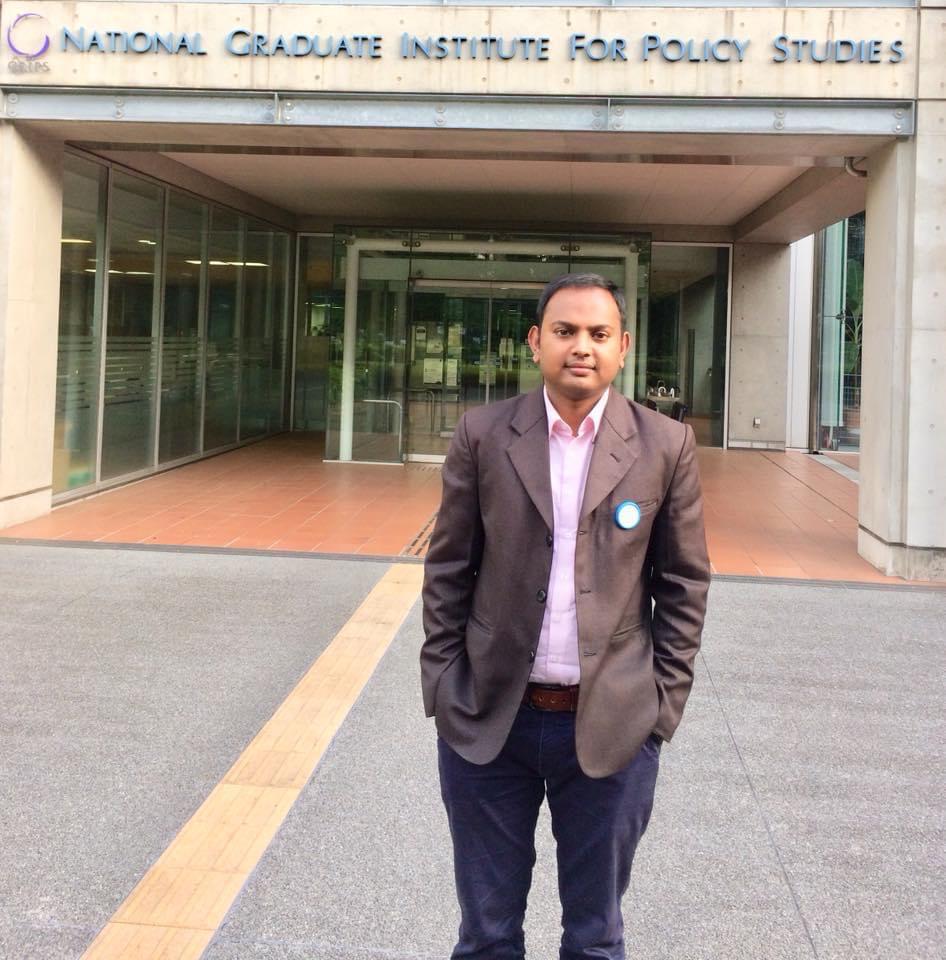
Visiting GRIPS during a short trip to Japan in 2018
How do you maintain a balance between your work and the rest of your life? And what is your favorite thing to do when you are not working?
My work often involves addressing policy-related issues that demand extra hours beyond the standard office schedule. Producing drafts, conducting analyses, and engaging in extensive reading cannot always fit within the confines of regular office hours. However, I ensure I dedicate sufficient time to my family—my wife and my two daughters—before committing to these tasks. We, as a family, find joy in traveling whenever an opportunity arises. Our trips don't always have to be extravagant journeys to distant places; even short getaways prove to be remarkably refreshing for our minds.
What are some of your fondest memories of your time spent at GRIPS? And what do you miss about Japan?What are some of your fondest memories of your time spent at GRIPS? And what do you miss about Japan?
One of my fondest memories at GRIPS is watching my daughter take her first steps there. Also, the Japanese people affectionately called her "kawaii ne", which means "so cute". This memory is etched in my mind forever. As for what I miss about Japan, it's the politeness and disciplined lifestyle of the people.
If you could give one piece of advice to anyone considering studying at GRIPS what would it be?
I would advise applying to study at GRIPS. Here, you will not only acquire knowledge but also develop expertise that will prove invaluable in your research work.
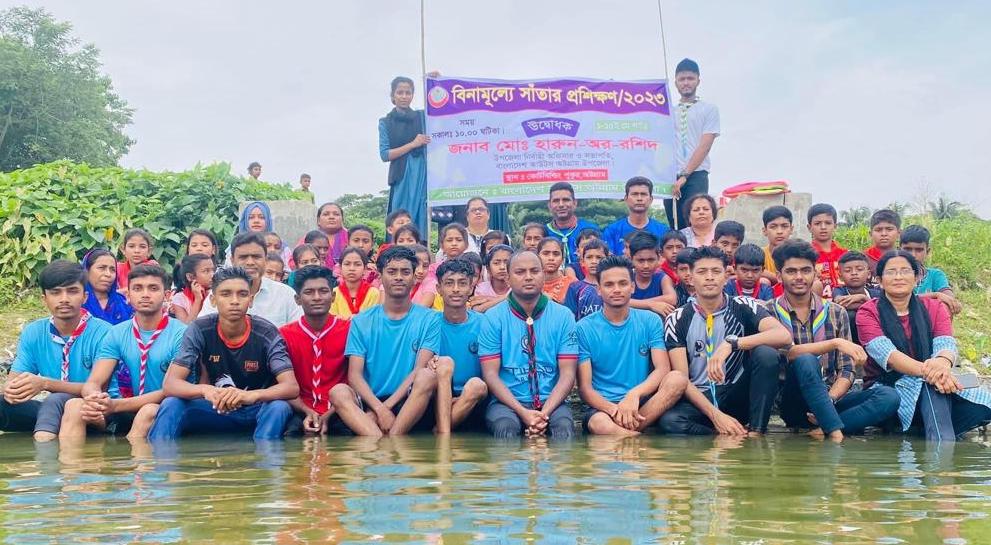
Swimming training for the children
How would you like to maintain involved with the School? What do you expect from GRIPS as an alumnus and do you have any suggestions on how to further utilize the GRIPS alumni network?
I am eager to maintain my involvement through research work. I believe this is the most practical way for alumni to stay engaged effectively with GRIPS. One potential avenue could be the initiation of research projects where capable and interested alumni collaborate with professors and current students.
I believe that the alumni network can be highly beneficial in international contexts, particularly for professionals whose work spans multiple countries. Sharing knowledge and experiences within this network could be mutually enriching. I hope that GRIPS continues to foster these collaborations and facilitates opportunities for alumni to actively participate in the school's academic initiatives.
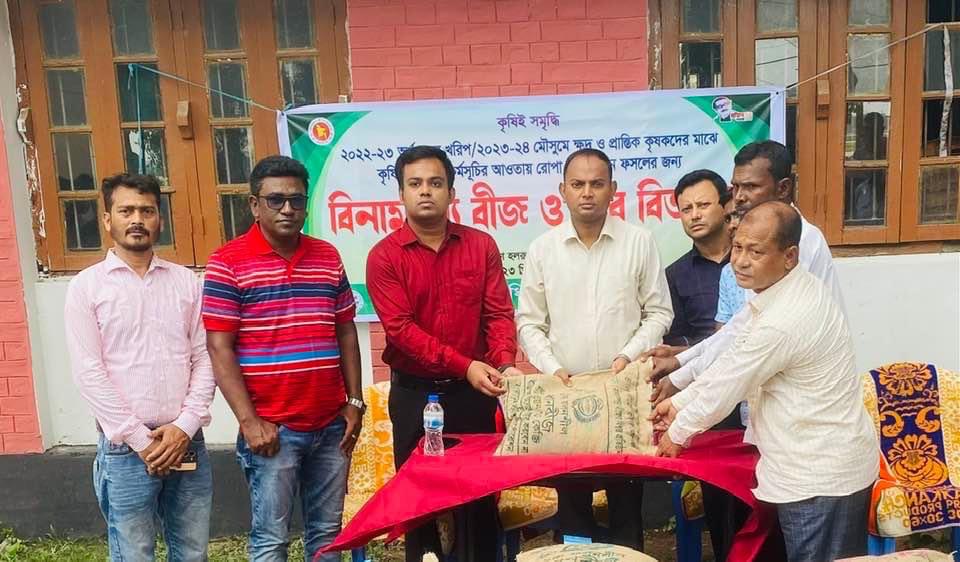
Delivering agricultural products to local farmers





